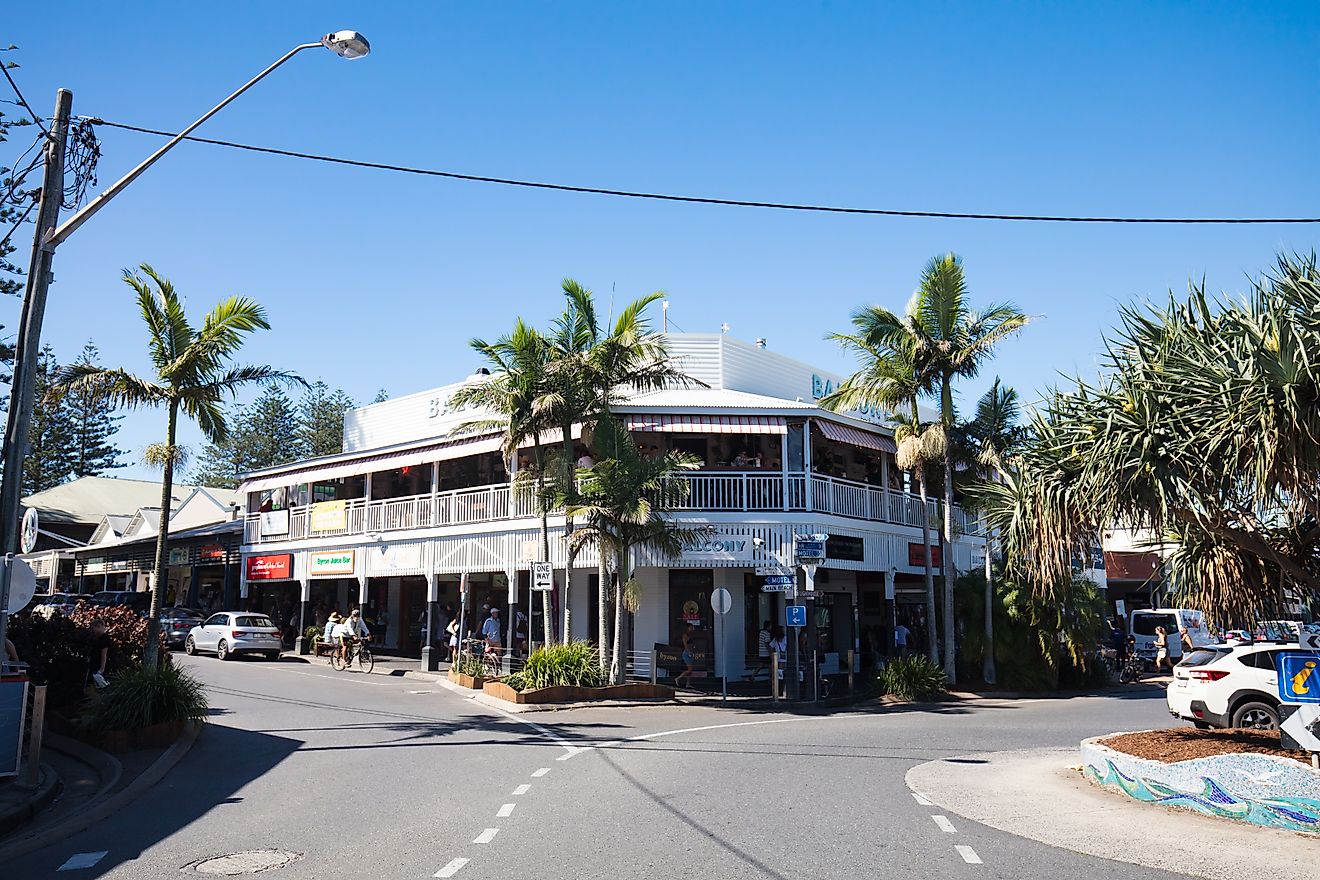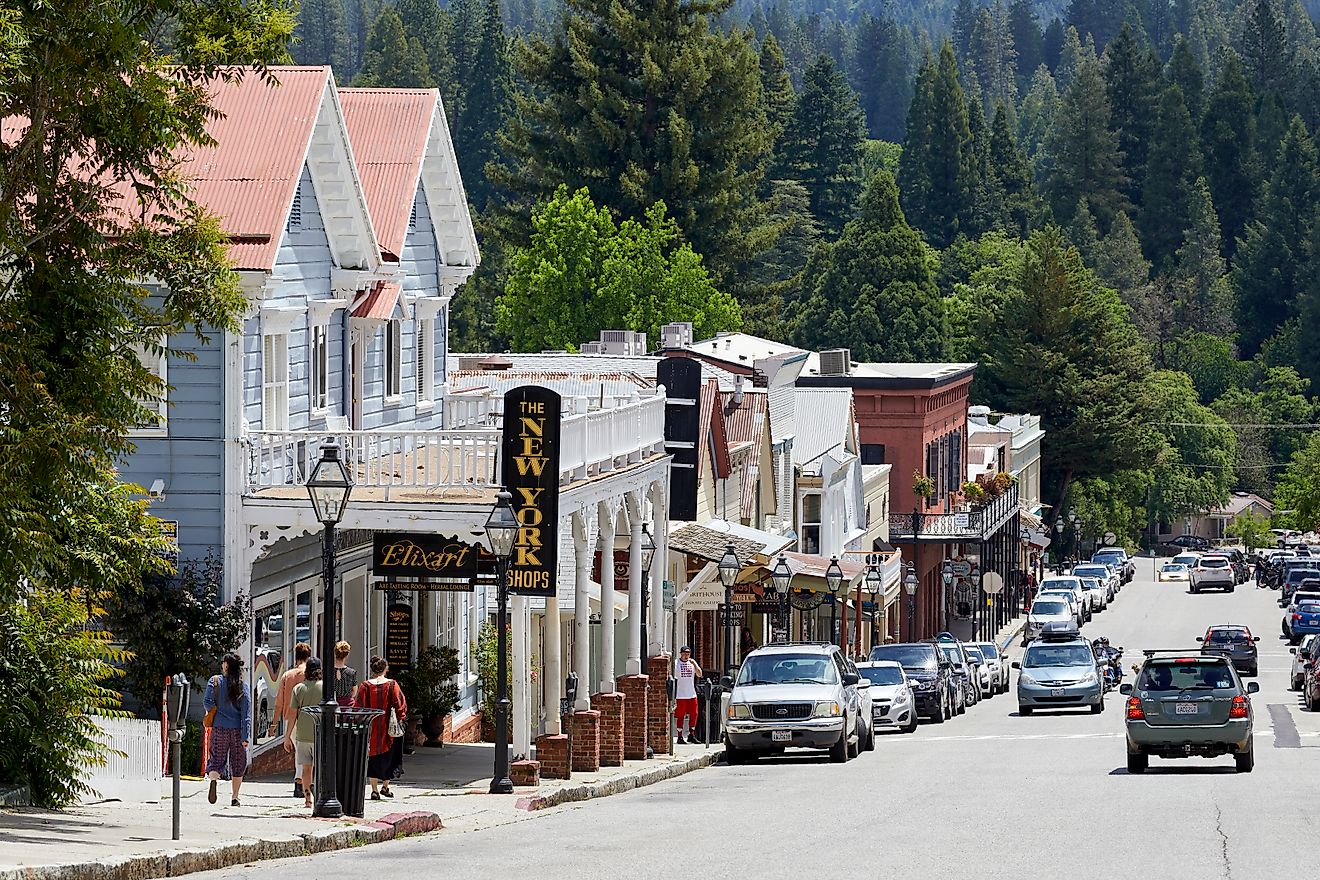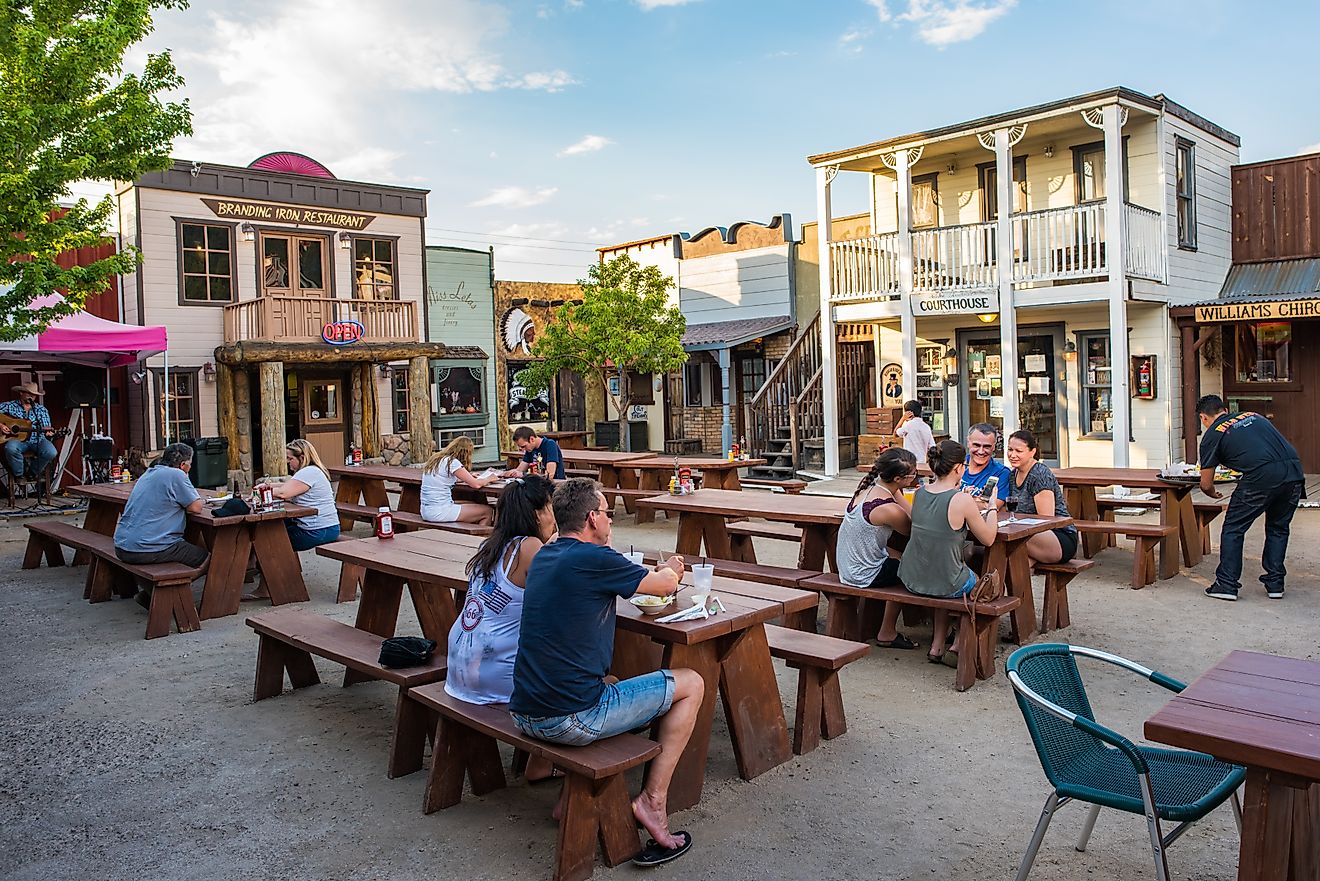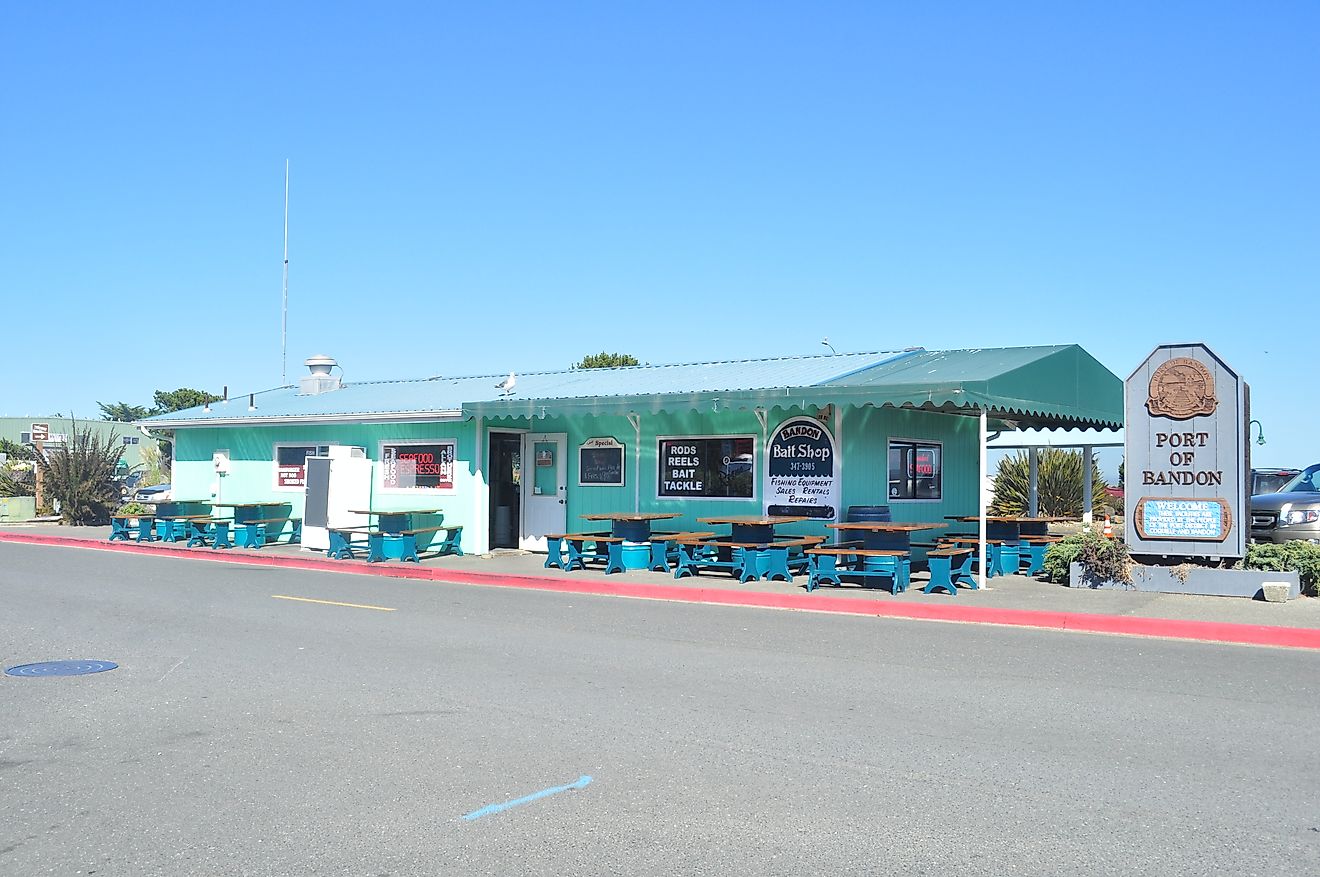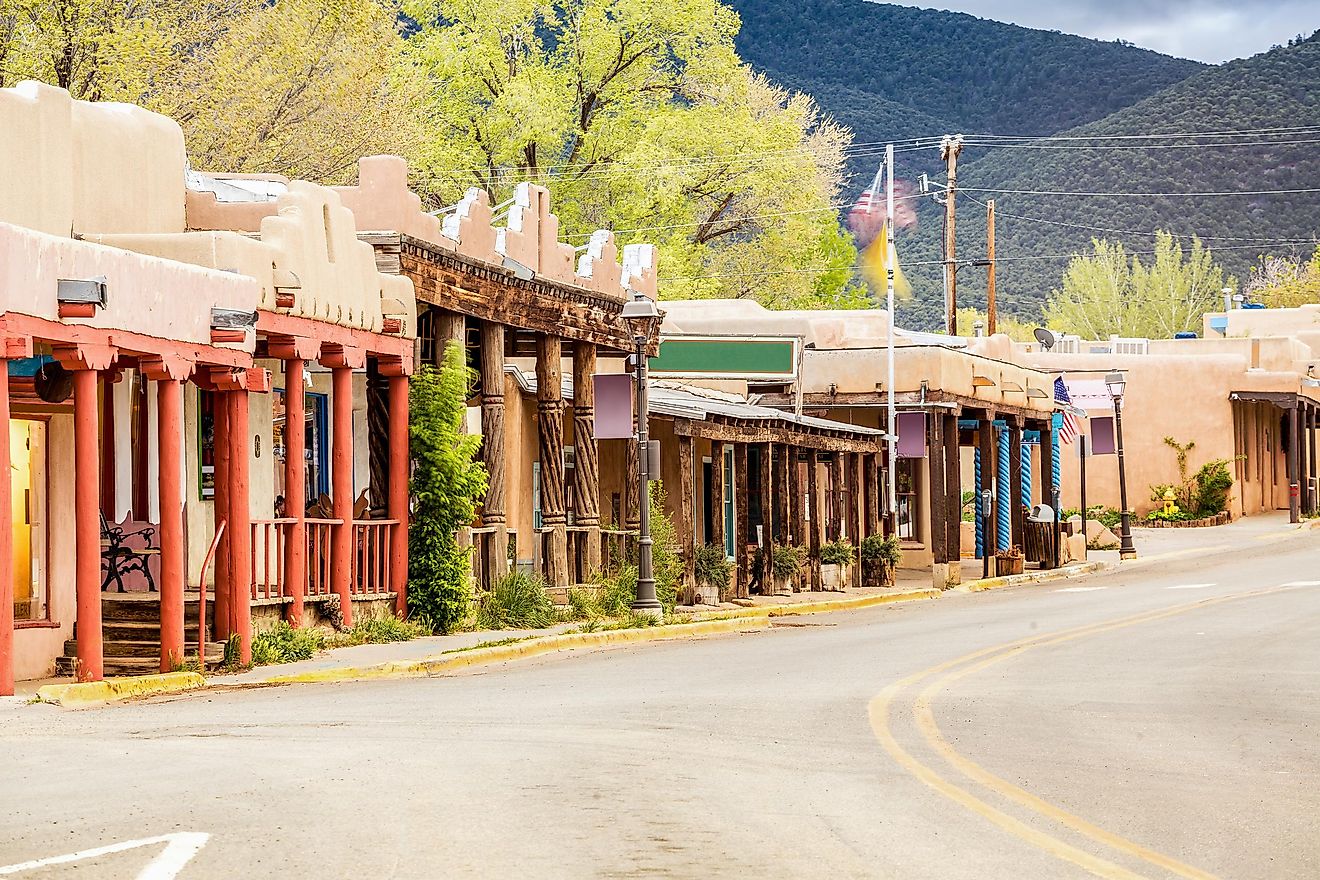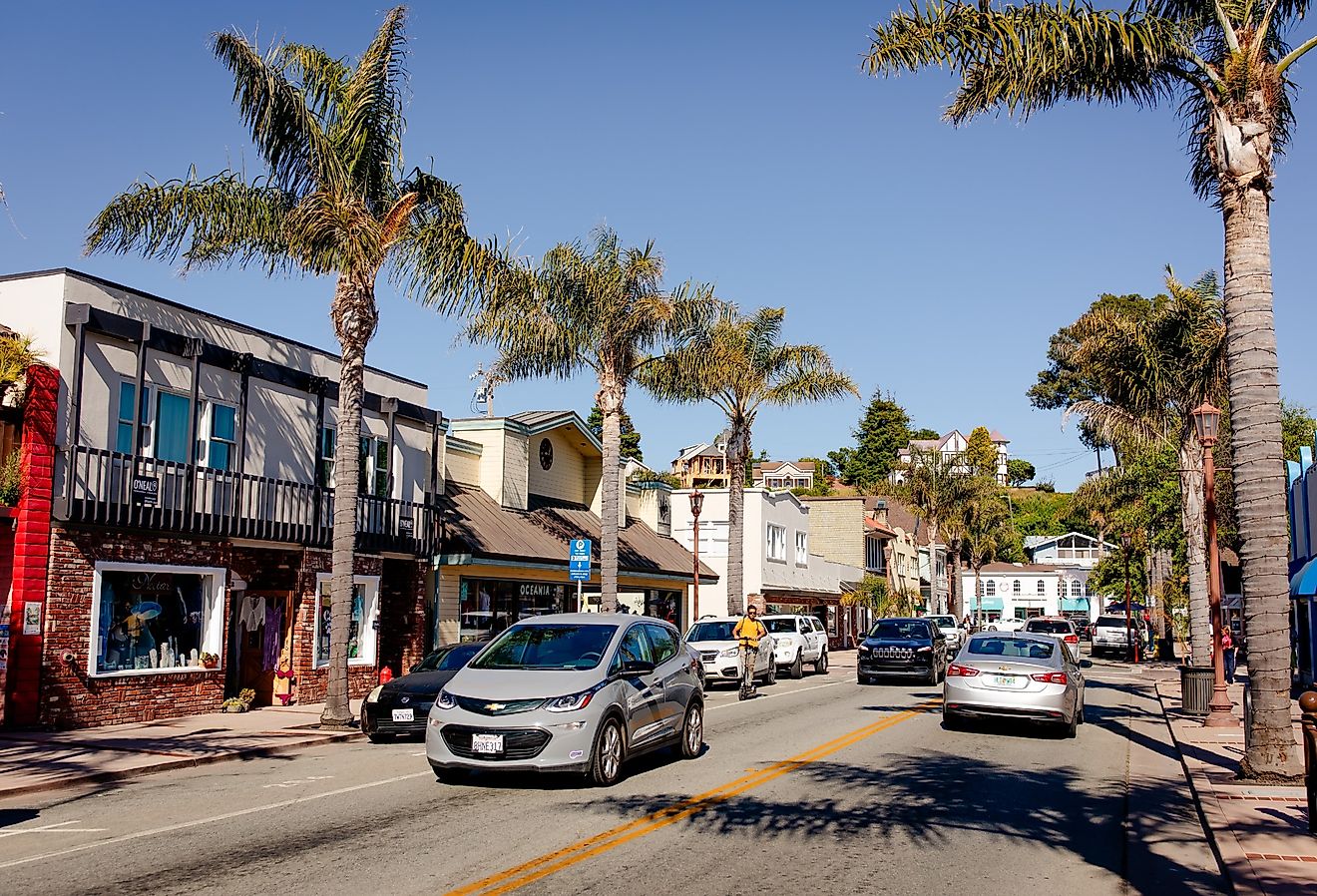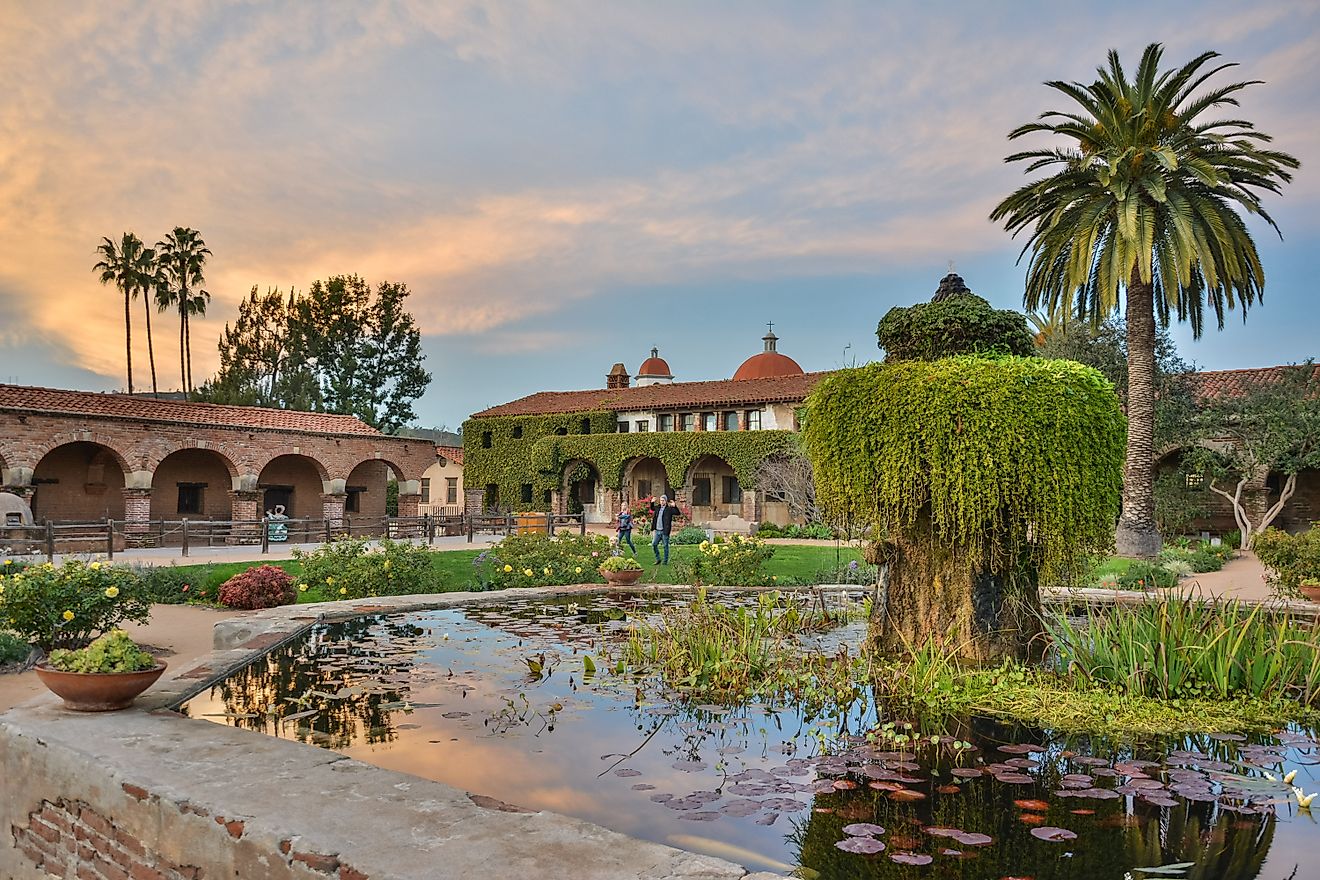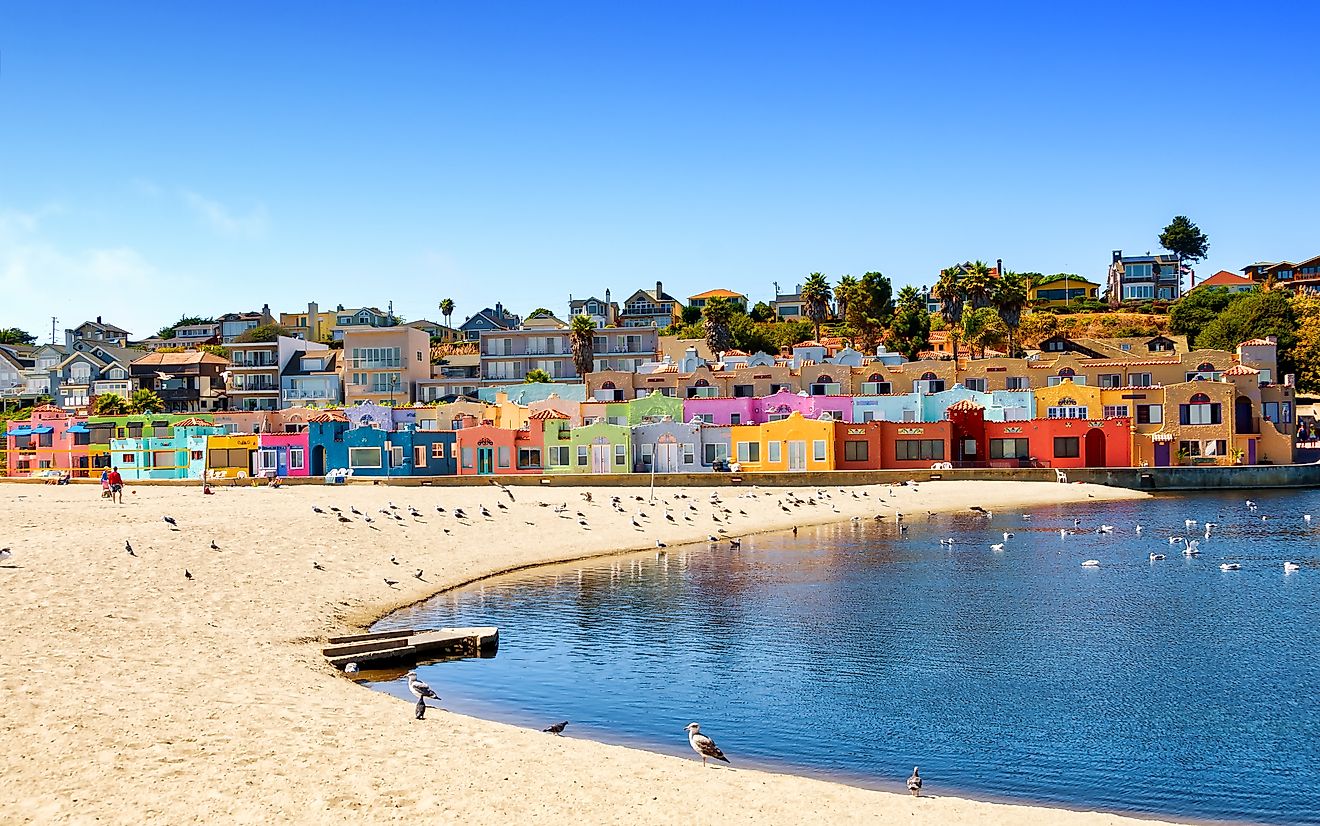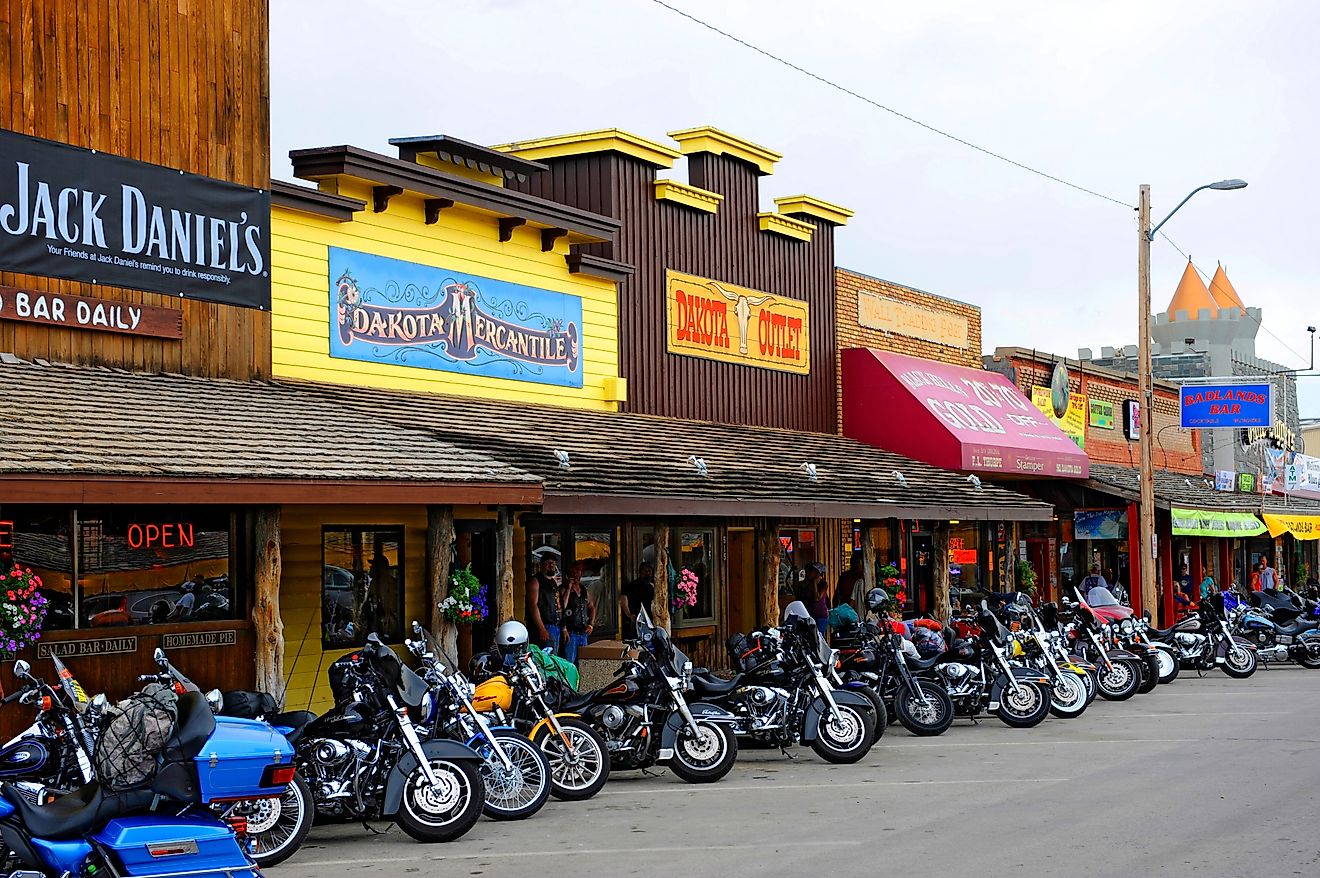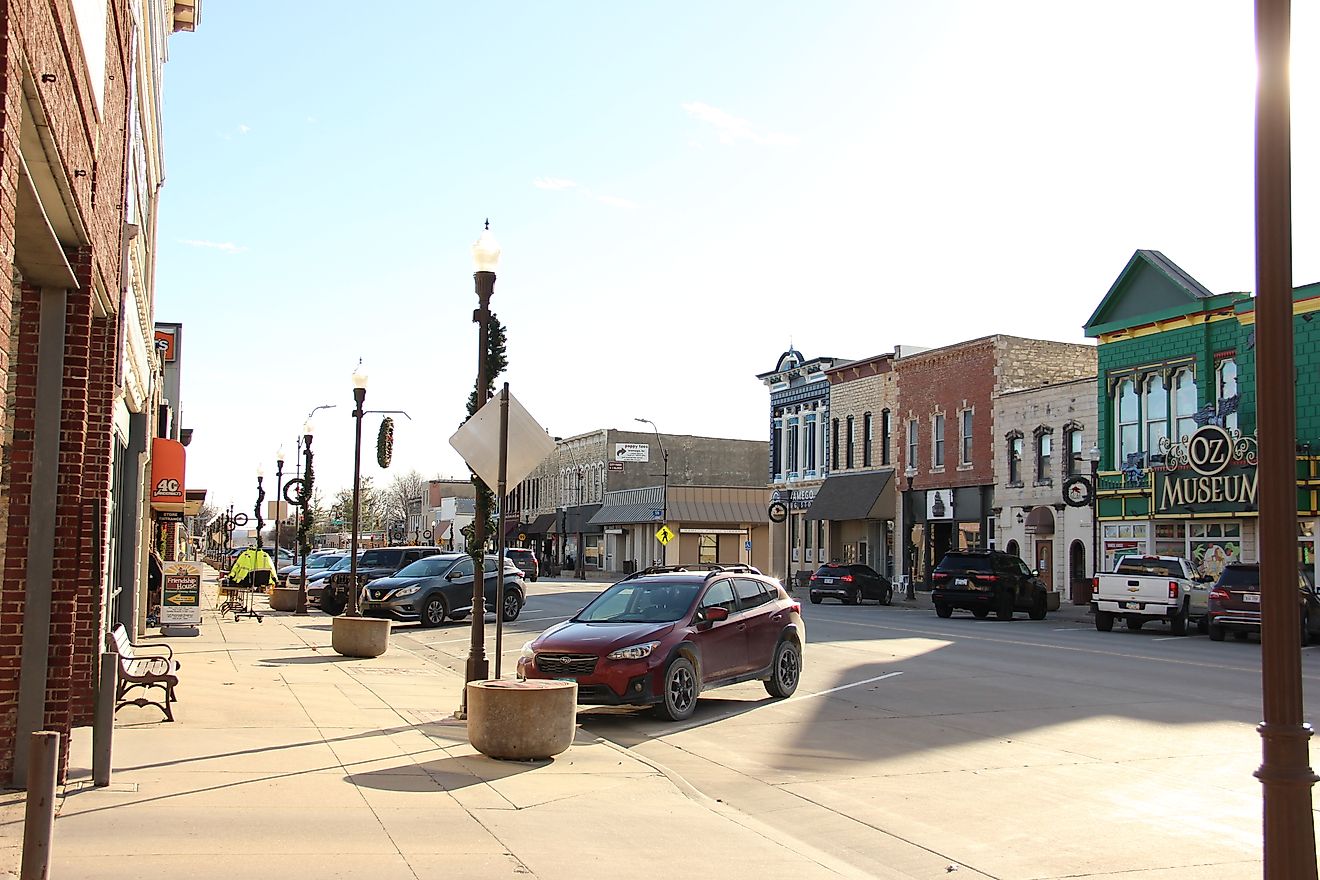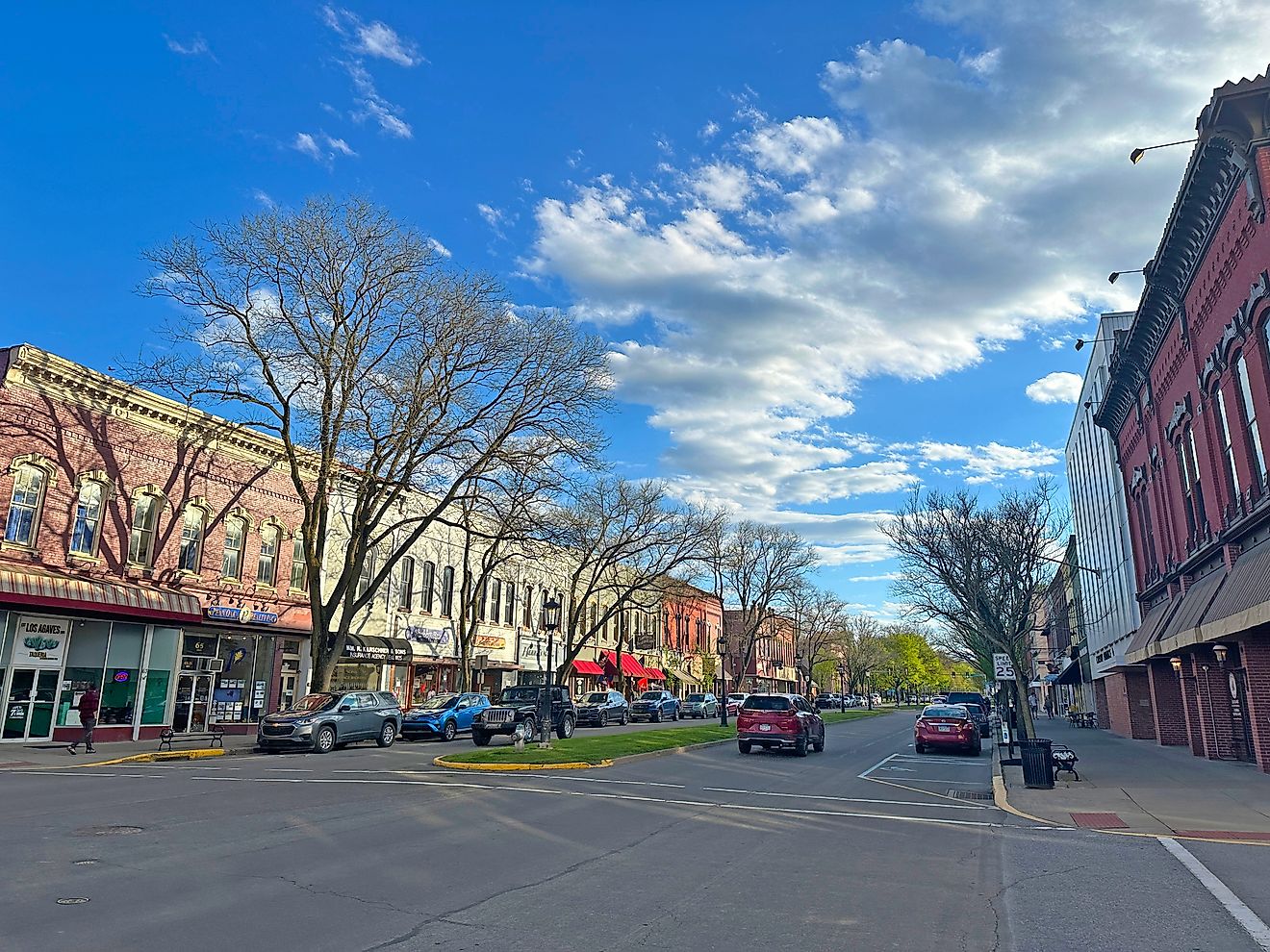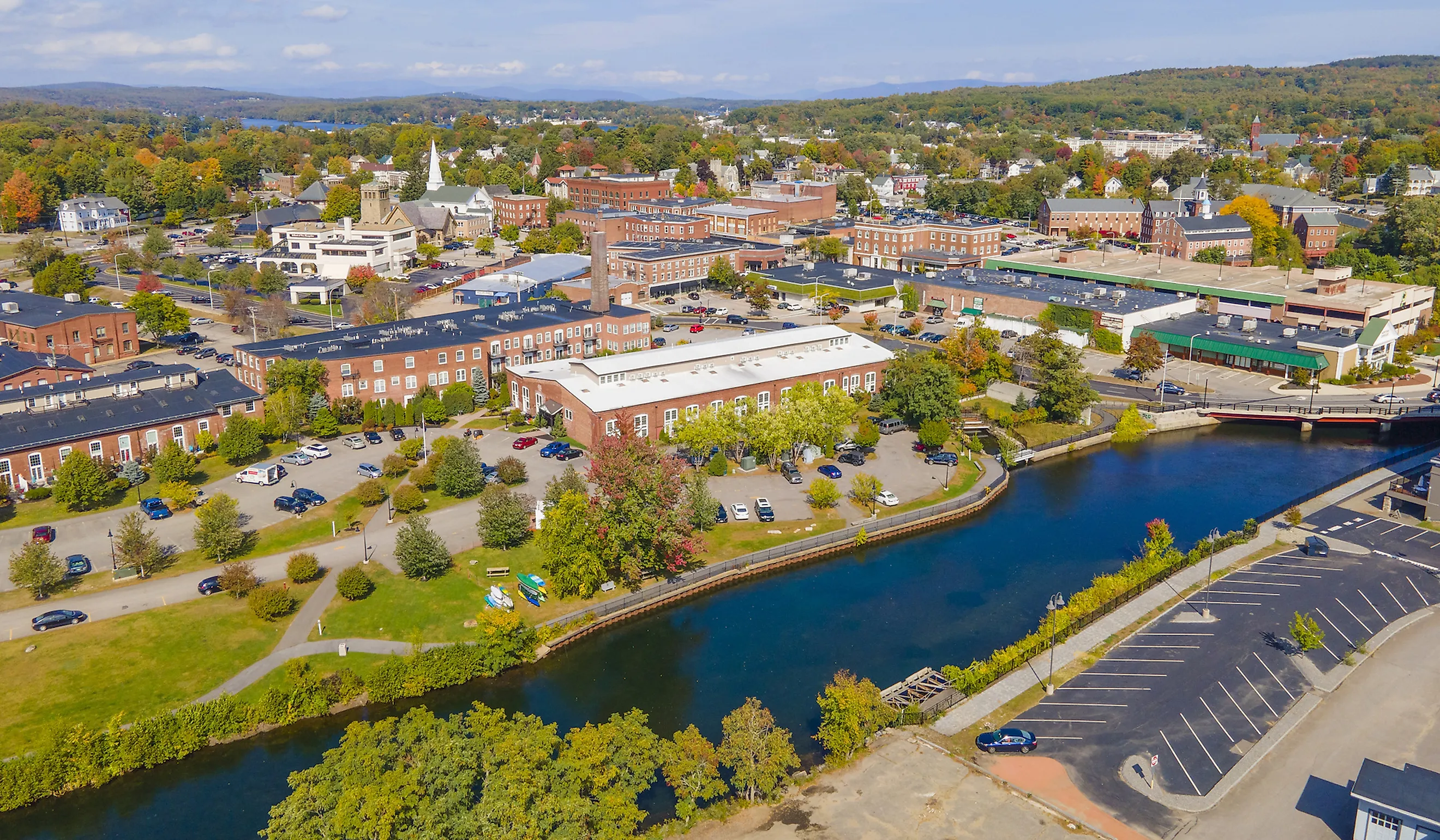
6 Wallet-Friendly Small Towns To Retire In New Hampshire
At one time, retirement meant you stopped working and usually stayed where you’ve always been. As the aging population became more affluent, selling up and relocating to the sun and warmth of Florida or Arizona became popular. For those who crave something different, who love history, outdoor life, small town charm, and most of all, four seasons, New England continues to be a draw. New Hampshire ranks 41st in population in the United States, just slightly higher than neighboring Maine, which is more than twice the size of New Hampshire. Population rates during this decade have shown that New Hampshire’s population is on the rise, and a big part of that is retirees relocating. Part of that is the lifestyle, the access to New Hampshire’s natural beauty, small-town atmosphere, and its focus on independence and laissez-faire politics. New Hampshire also boasts no sales tax or income tax, and this is attractive to retirees looking to make sure their retirement savings and pensions go further. Here are six of the most wallet-friendly small towns in New Hampshire.
Littleton
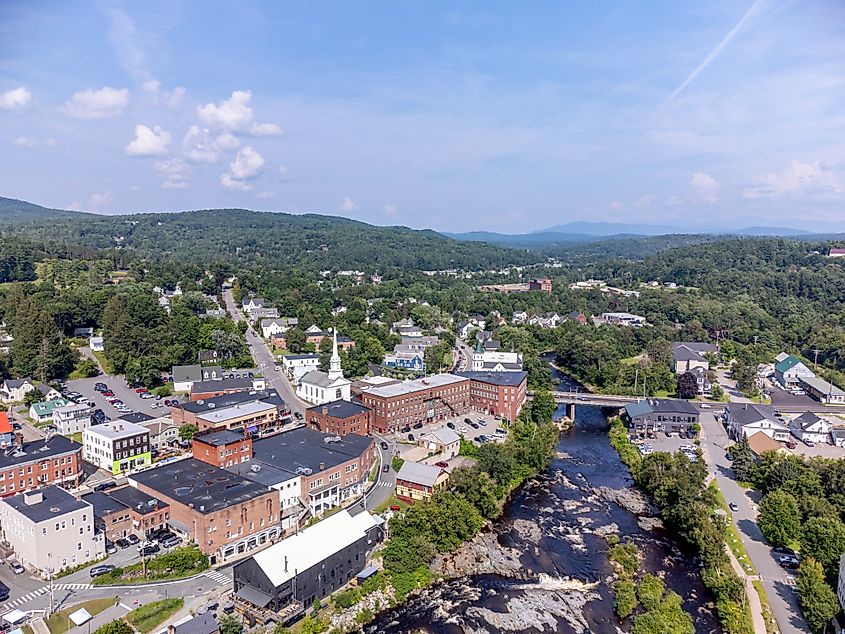
The historic town of Littleton is situated in the White Mountains, near the Connecticut River and Ammonoosuc River. It has been named the most charming small town in New Hampshire and one of the “last great classic Main Streets in New England.” The area is affordable, with an average home price far lower than the state median at an average of $337,800. Built in 1895, the Littleton Opera House has served many purposes, from a fire hall, library, and town offices. The opera house section has a seating of 750, and the whole building is available for rentals, but it is also a great place for local history and information, as is the Littleton Area Historical Society.
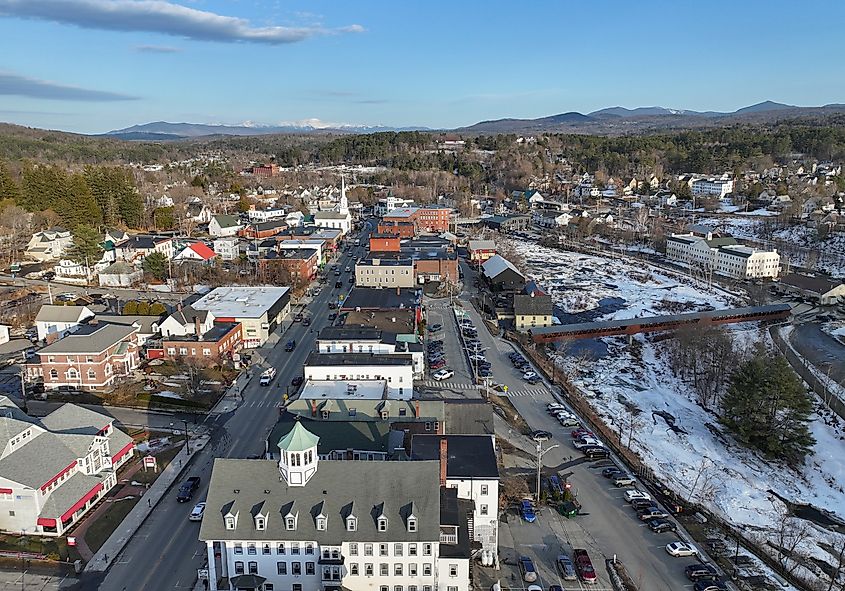
If you’re shopping for grandchildren, the Little Village Toy & Book Shop is nearby. For food or drinks, there’s the Schilling Beer Co. situated on the Ammonoosuc River, offering tastings and food, including wood-fired pizza. There’s a beautiful covered bridge over the rushing Ammonoosuc River and leading into town that has been well-preserved. Historic buildings line the rivers and creeks, with many of the buildings powered by hydroelectricity from the rivers and streams in the area. The Moose Reservoir is a perfect spot for water recreation.
Plymouth
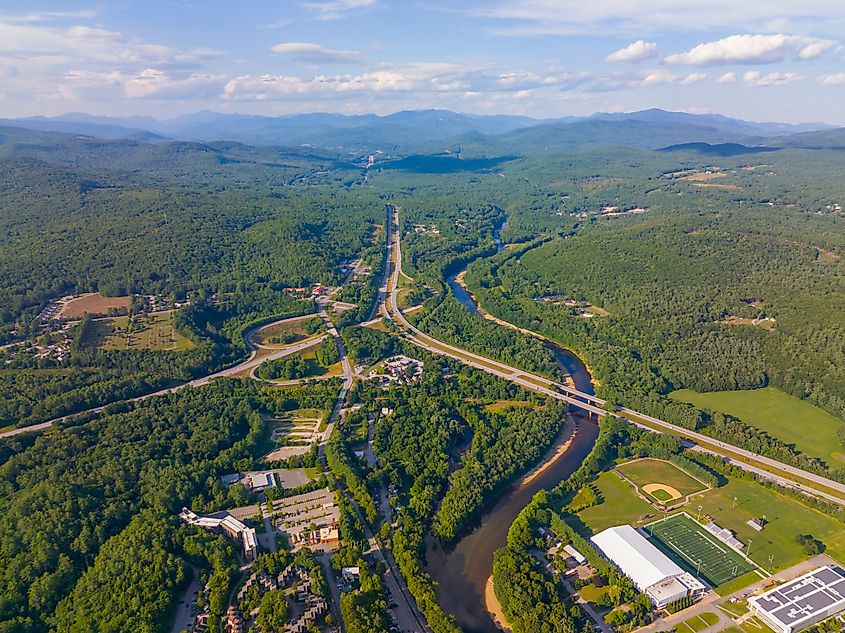
If you’re seeking a livelier kind of small town, Plymouth, despite its diminutive size of 6,682 people, is nevertheless home to Plymouth State University. For its size, Plymouth is bustling, but it is also affordable: the average cost of homes is $342,300, well below the state median of just over $500,000. Located at the foot of the White Mountains at the confluence of the Pemigewasset and Baker rivers, Plymouth has all the charms of a small New England town that you would expect. The surrounding area is rural, and Plymouth is the main urban center, in addition to being the gateway town to the lakes, rivers, and mountains of the region. Plymouth is also the location of Speare Memorial Hospital, a 100,000 square foot Critical Access Hospital for the region.
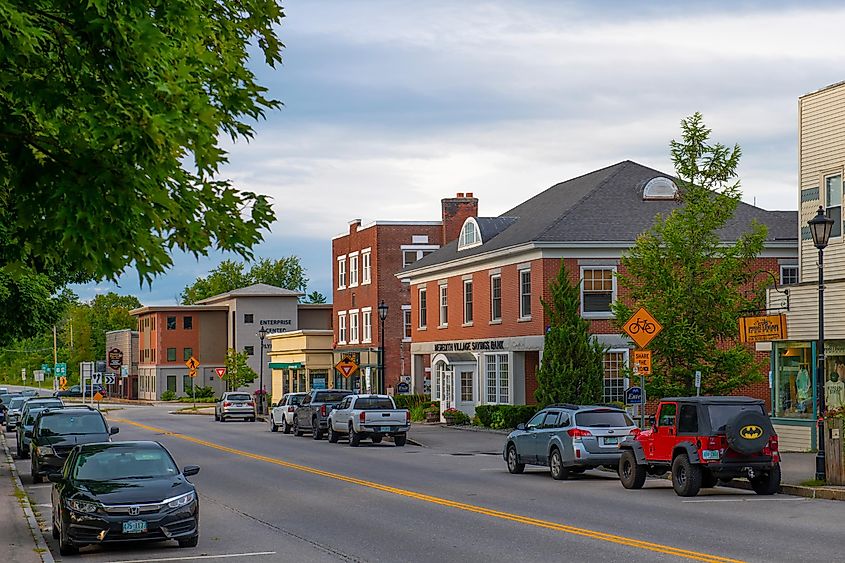
Located right on Main Street, The Main Street Station is open for breakfast and lunch. Also, right downtown is Chase St. Market, offering later meals. The Smith Covered Bridge was built between 1994 and 2001 after the original bridge burned down. Spanning the Baker River, the original bridge was built before 1786. Outside Plymouth is Tenney Mountain, rising 2,350 feet above sea level, which features a resort, plus skiing and snowboarding. Polar Caves Park features glacially-formed talus caves, the deepest of which is cold enough to retain snow through the summer months. The caves are located along New Hampshire Route 25 and are privately owned, but open to the public from May through October.
Laconia
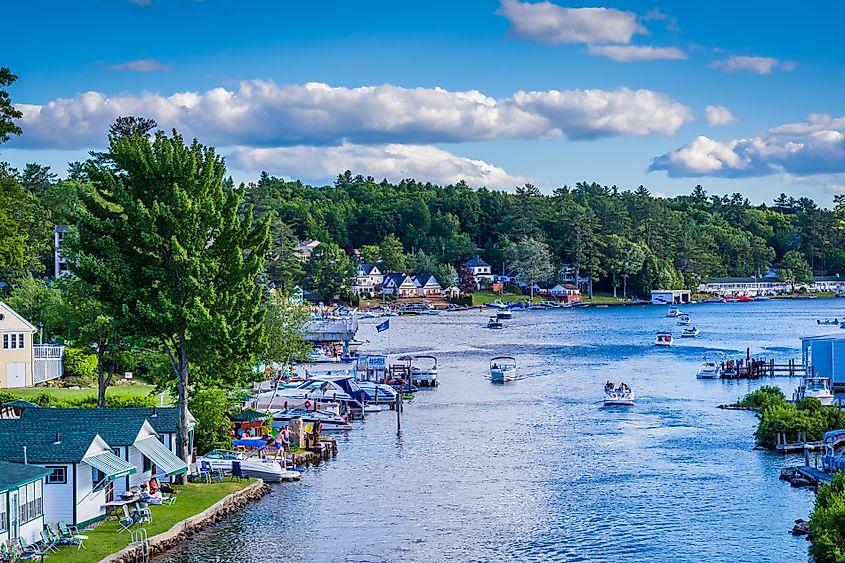
One of the larger communities on this list, with a population of 16,654, Laconia lies between Lake Winnipesaukee and Winnisquam Lake, and is the gateway to New Hampshire's Lakes Region. The senior demographic is over 20% and the housing rates average $427,529, just under the state median. Located between two lakes, there are plenty of beaches in the warmer months in Laconia, with year-round outdoor activities. Laconia is made up of three districts, or villages: Downtown, Lakeport, and Weirs Beach. The nearby Gunstock Mountain Resort provides options for camping and snow sports, plus dining at resort facilities. Lake Winnipesaukee is New Hampshire’s largest lake, and it contains over 250 islands. Much of the shoreline is accessible, and the waters are boat-friendly. The smaller Winnisquam Lake has fewer crowds and is known for its trout, salmon, whitefish, and bass fishing.
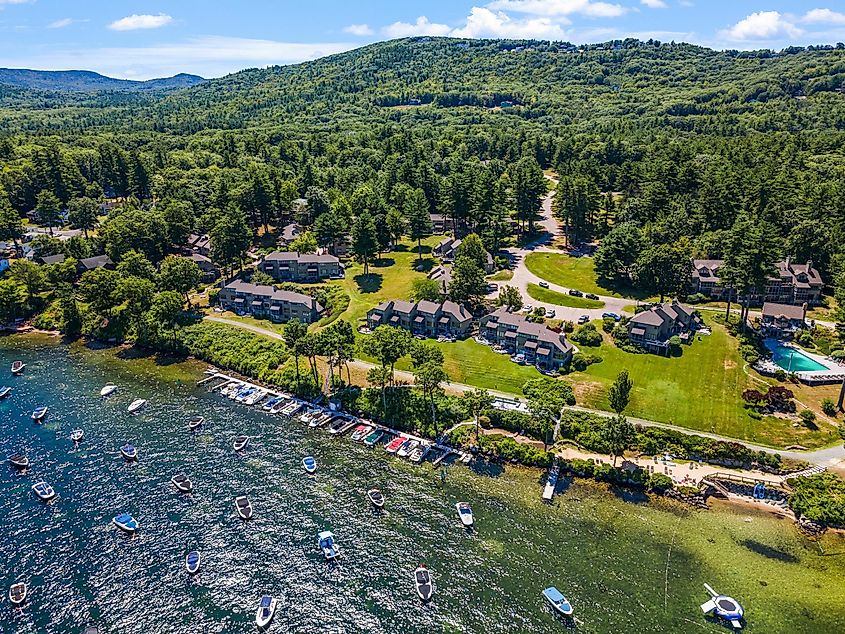
Endicott Rock State Historic Site is a state park located on Lake Winnipesaukee. Endicott Rock is a large rock taken from the lake and inscribed by surveyors for the Massachusetts Bay Colony in 1652. For those who love antiquing, in Downtown Laconia, there’s Laconia Antique Center, two large floors of eclectic wares, including model trains, books, records, and guns. Weirs Beach Boardwalk runs the length of the beach for 1/4 mile. There are lots of food options by the boardwalk, including Half Moon Pizza Stand, and right on the Winnipesaukee Pier overlooking the water, DOX on Winnipesaukee, which is open seasonally from Spring through Autumn.
Campton
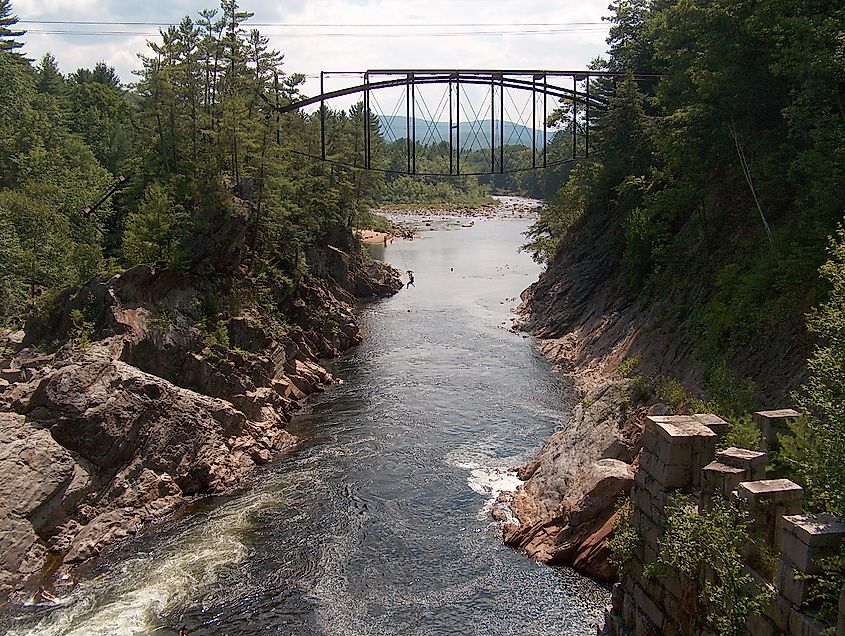
Located in the White Mountains, Campton is considered one of the top towns in New Hampshire to buy a home. The average home price is a reasonable $384,900, making Campton an attractive locale for retirees. Nestled in the White Mountains, Campton sits by the Pemigewasset River, while the smaller Bebe River meanders through the town. The natural beauty of the surrounding countryside is perfect for outdoor pursuits, including hiking, fishing, and skiing. Close to Campton, you will find the Waterville Valley Resort for skiing, while the White Mountain National Forest offers scenic drives, winter sports, hiking, hunting, and fishing. There is also the Livermore Falls State Forest and the Bebe River Falls, offering plenty of hiking opportunities.
The town has plenty of amenities within its rustic charm. Restaurants include the Covered Bridge Farm Table, featuring a farm-to-table menu, and the Mad River Tavern, a bar and grill that has been in business for several decades. For antiquing, there is the Chalet Antiques Barn & Museum, while the Vintage Arcade features old-school arcade games, plus pool and pinball. As a nod to the old days, the arcade games only cost a quarter. Dam Brewhouse is a small craft brewery that also houses Mad River Coffee Roasters. In the warmer months, there is a farmers’ market, and in the summer, the White Mountain Boogie & Blues Festival takes place. Crossing the Pemigewasset River is the Blair Bridge, a wooden covered bridge built in 1870.
Peterborough
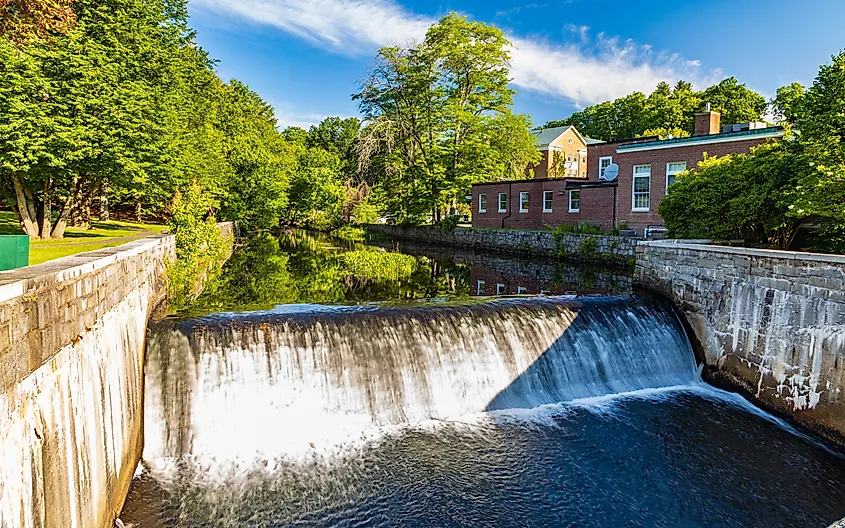
The town of Peterborough sits on the Contoocook River near Mount Monadnock. As with many New Hampshire towns and villages, Peterborough offers a mix of outdoors and small-town urban activities. The average price of a home is $435,900, and the community is well-suited for those interested in both the outdoors and art and culture. The population is 6,418, with 3,090 living in the main village. Mount Monadnock, or Grand Monadnock, at 3,165 feet, is the highest peak in southern New Hampshire and is over 1000 feet higher than any other mountain in the area. It is mentioned in the writings of both Ralph Waldo Emerson and Henry David Thoreau and was designated a National Natural Landmark in 1987.
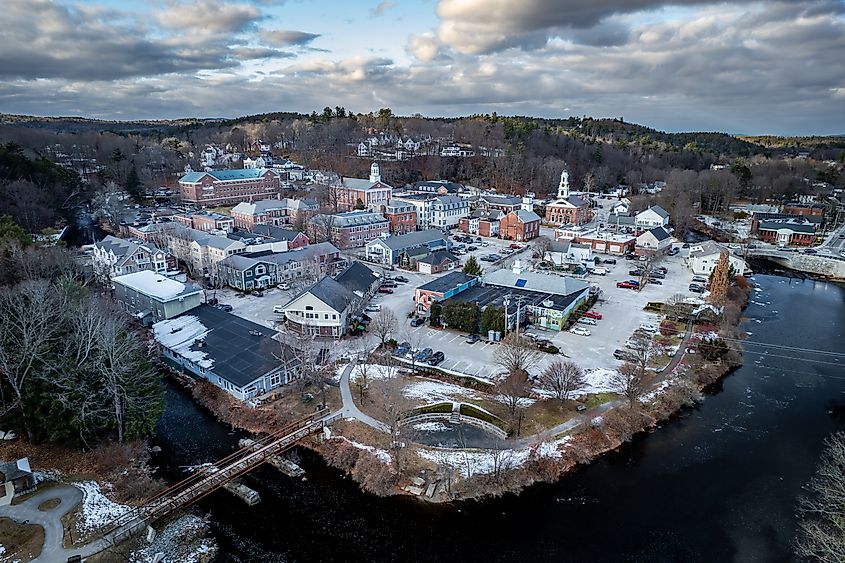
Peterborough is well-known for its antique stores and shops offering repurposed goods. Twin Elm Farm, Bowerbird & Friends, Murray's Home Again, and Grove & Main Antiques are all worth a visit. The town is also renowned for its arts and culture. Founded in 1907 by composer Edward MacDowell and his wife, pianist and philanthropist Marian MacDowell, MacDowell is an artist's residency program. The town also features the Mariposa Museum, focusing on global art. Monadnock Eats and Waterhouse Restaurant are two local favorites, both found in the main village.
North Conway
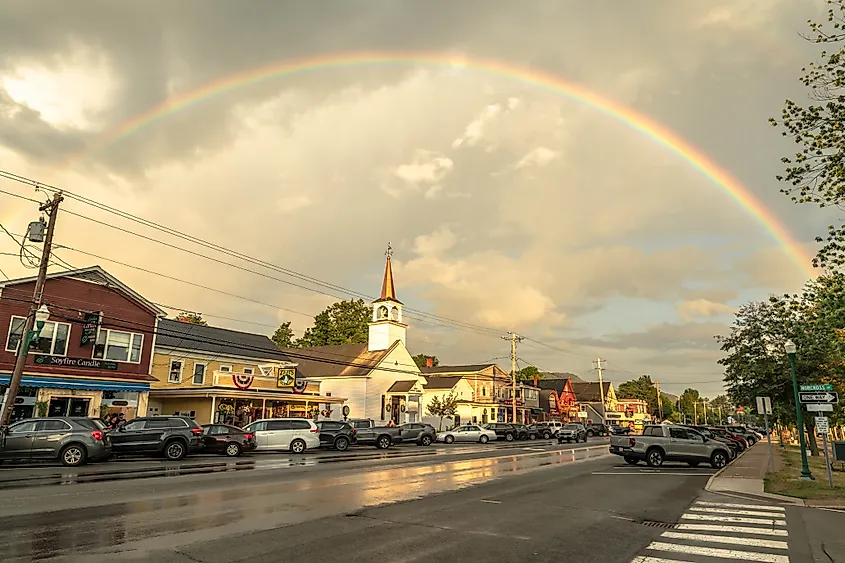
In the heart of the White Mountains, North Conway is celebrated for its skiing. That culture permeates the town, so if skiing is your thing, this might be the place to retire. Although it is a ski resort town, North Conway is not as expensive as you would think. At an average of $466,800 for a home, this is still below the state median. Overall, the cost of living is 12% lower than the state average. With higher-than-average rental costs, North Conway may not be suitable for singles or young couples starting out, but for retirees, this is definitely an option.
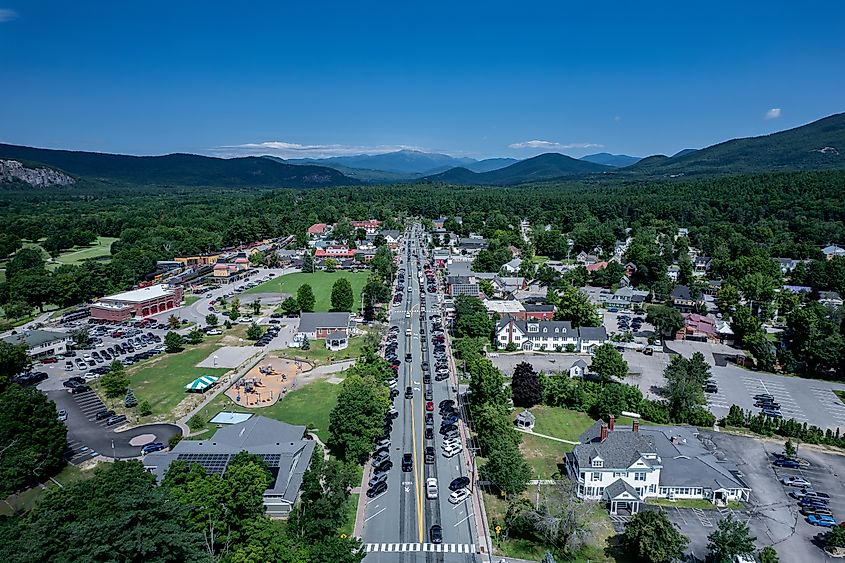
The New England Ski Museum is located in North Conway, and the town has a heritage railroad, Conway Scenic Railroad, that provides access to a number of locations through the surrounding area with 51 miles of track. The town has much to offer outside of skiing. Scenic drives on the Kancamagus Highway, which passes through the White Mountain National Forest, are a great way to take in the spectacular views, while the Saco River provides plenty of water activities. Diana’s Baths Waterfalls are in Bartlett, just outside North Conway Village. The falls feature fresh, cold water from Big Attitash Mountain. For food options in the warmer months, Cheese Louise is a student-owned and operated food truck focusing on grilled cheese with two locations. There are vegan and gluten-free options at The Station Bistro, while Banners Restaurant offers breakfast and lunch.
A Different Retirement Option
Finding the right place to spend your retirement years is a big task. You need to consider how far you want to go and how close you will be to family, especially grandchildren. If small town life, four beautiful seasons, and access to history, culture, and the outdoors suit you, New Hampshire makes sense. In addition to no state income tax, for retirees, Social Security benefits are not taxed, and income generated from retirement plans is exempt from the state interest and dividends tax. With its lower cost of living and the reasonable real estate prices, the Granite State is a great choice for settling down.
